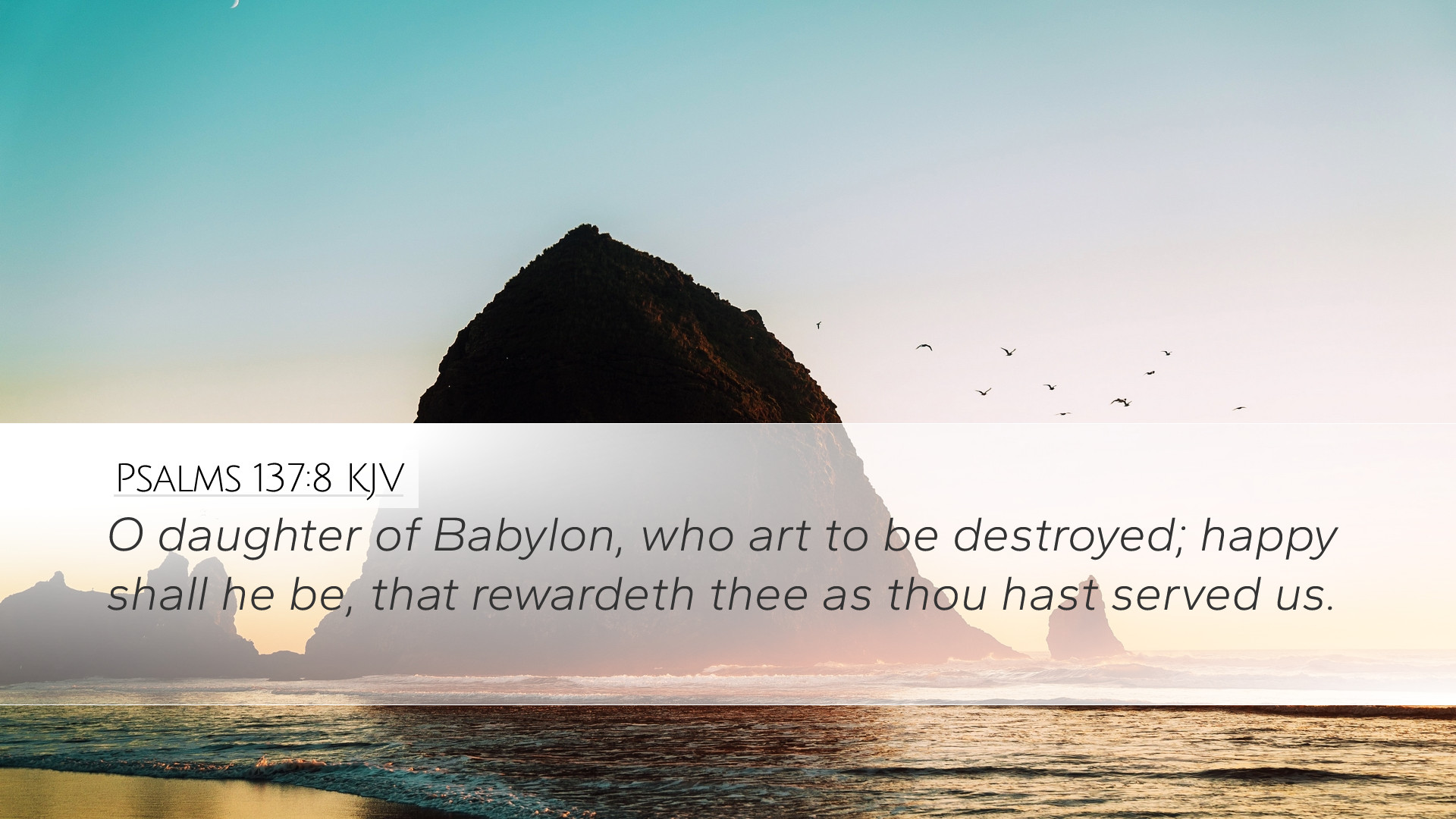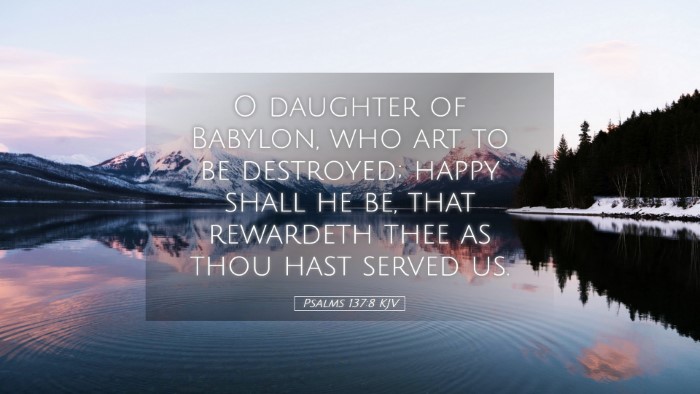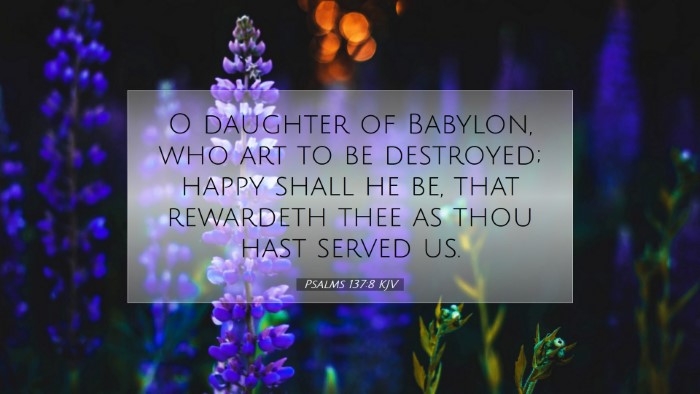Psalms 137:8 - Commentary and Insights
Verse Text: "O daughter of Babylon, who art to be destroyed; happy shall he be, that rewardeth thee as thou hast served us."
Introduction
The poignant cry of Psalm 137 emerges from a profound experience of exile among the Israelites in Babylon. This particular verse encapsulates both a longing for justice and a desire for recompense regarding the suffering imposed by their captors. Here, the psalmist implies a prophetic utterance concerning the fate of Babylon, highlighting themes of divine judgment and moral retribution.
Historical Context
The context of Psalm 137 is crucial for understanding its implications. Composed during the Babylonian Exile (586-538 B.C.), the Israelites faced unprecedented punishment, resulting in the loss of homeland, worship, and national identity. The imagery associated with Babylon symbolizes a profound spiritual and physical captivity, setting the stage for reflective cries for vengeance.
Commentary Overview
This Psalm, particularly verse 8, is meticulously examined by various commentators. Each reflects on the juxtaposition of suffering and the hope for justice; thus, an integration of their thoughts reveals rich layers of meaning.
Matthew Henry's Perspective
Matthew Henry emphasizes the psychological and spiritual anguish of exile. In his analysis, he argues that the expression "daughter of Babylon" reflects the personification of the city as a motherly figure that has cruelly birthed suffering upon the Israelites. He portrays the thought of Babylon's destruction as bringing comfort to the exiled, highlighting a hope for divine justice: “The fall of Babylon is therefore seen as a personal vindication for the sufferings endured by God's people.”
Albert Barnes' Insights
Albert Barnes delves into the notion of recompense within this verse, interpreting the word "happy" as indicative of true blessedness for the one who exacts justice upon the oppressors. He notes that this reflects a deeper theological principle at work where the righteous are ultimately vindicated: “The prayer for retribution is grounded in a belief that divine justice must prevail.” Barnes further suggests that the emotional plea is not merely vengeful but a recognition of a God who sees and responds to injustice.
Adam Clarke's Commentary
Adam Clarke provides a broader theological commentary on the implications of verse 8. He reflects on the fate of wicked nations in light of God's justice: “Babylon’s destruction is both an inevitable consequence of her cruelty and a reflection of God’s sovereignty in historical affairs.” Clarke sees the statement regarding happiness connected to the righteous: “The one who enacts justice against oppressive powers will experience fulfillment, for they align with the divine will.”
Theological Themes
Three central theological themes emerge from this verse: justice, hope, and divine sovereignty.
- Justice: The cry for Babylon's downfall signals a deep longing for rectification of wrongs. The text emphasizes that those who inflict suffering will not go unjudged.
- Hope: Amidst despair, the psalmist hints at a future restoration where justice will reign. This hope fuels resilience among the oppressed, affirming their faith in God’s ultimate plan.
- Divine Sovereignty: The reference to the fixed fate of Babylon reflects God’s control over nations and history. The psalmist asserts that God actively engages in the affairs of men, ensuring that justice prevails.
Practical Implications for Believers
The sentiments expressed in Psalm 137:8 resonate deeply with contemporary believers who seek justice in a world rife with oppression.
- Understanding Suffering: Believers are reminded that suffering can serve a purpose, drawing them closer to God and allowing them to appreciate divine justice.
- Advocacy for Justice: Christians are called to be advocates for the oppressed, in line with God’s character, working towards just systems in societies where power is abused.
- Faith in Divine Justice: The assurance that God sees and will act encourages believers to trust in His timing and maintain hope amidst trials.
Conclusion
Psalms 137:8 reveals the complex interplay of suffering, hope, and the demand for justice. By reflecting on the insights from Matthew Henry, Albert Barnes, and Adam Clarke, one appreciates the multidimensional aspects of this verse. Ultimately, it challenges believers to consider their own roles in advocating for justice while maintaining unwavering faith in God’s righteous governance over history.


